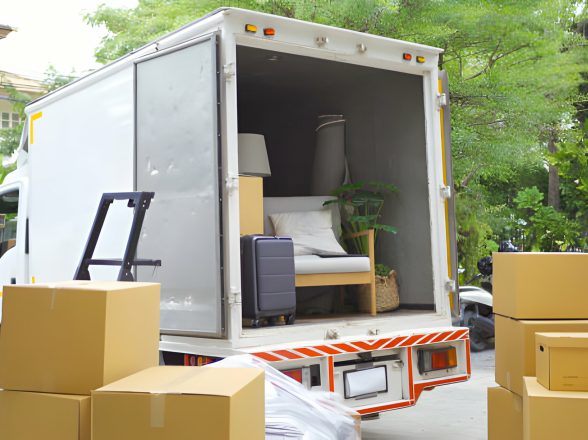Globax news
Blog
Selecting the Suitable Transportation to Fulfil Your Requirements

Transportation is a fundamental aspect of modern life, impacting everything from daily commutes to global trade. Choosing the right mode of transportation is crucial as it directly affects efficiency, cost, environmental impact, and overall satisfaction. This brief aims to provide insights into selecting suitable transportation options tailored to specific needs, considering factors such as distance, purpose, cost, convenience, and environmental concerns.
Understanding Transportation Modes:
Road Transportation: Cars, buses, and motorcycles offer flexibility and accessibility for short to medium-distance travel. They are suitable for urban commutes, short trips, and transporting goods locally by packers and movers in Patna.
Rail Transportation: Trains are efficient for medium to long-distance travel, offering comfort and reduced environmental impact compared to road transport. They are ideal for intercity journeys and commuting between major cities.
Air Transportation: Airplanes provide rapid long-distance travel, connecting distant locations globally. While faster, they are more expensive and have a higher carbon footprint compared to other modes.
Water Transportation: Ships and boats are efficient for transporting goods over long distances, especially for bulk cargo. They are environmentally friendly but slower compared to air and road transport.
Assessing Your Needs:
Distance: Consider the distance you need to travel. For short distances within a city or town, road transportation may suffice. For longer distances between cities or countries, air or rail transport might be more suitable with best packers and movers in Patna.
Purpose: Determine the purpose of your travel. Whether it’s commuting to work, leisure travel, or transporting goods for business, your transportation choice should align with your objectives.
Time Sensitivity: If time is critical, prioritize faster modes of transportation such as airplanes or high-speed trains. For less time-sensitive journeys, slower but cheaper options like buses or ships may be preferable.
Cost: Evaluate your budget for transportation. Air travel tends to be more expensive, especially for long distances, while road and rail options offer more affordable alternatives.
Environmental Considerations:
Carbon Footprint: Assess the environmental impact of different transportation modes. Air travel typically has the highest carbon footprint per passenger-kilometer, followed by road transport. Opting for trains or ships can significantly reduce emissions.
Sustainable Options: Explore eco-friendly transportation alternatives such as electric cars, bicycles, or public transit powered by renewable energy. These options help minimize pollution and contribute to sustainability efforts by movers and packers Patna.
Convenience and Accessibility:
Accessibility: Consider the availability of transportation options in your area. Urban areas often have well-developed public transit systems, while rural areas may rely more on private vehicles.
Flexibility: Evaluate the flexibility offered by different modes of transportation. Private vehicles provide maximum flexibility in terms of scheduling and routes, while public transit may have fixed schedules and routes.
Comfort: Take into account the level of comfort provided by each transportation mode. Air travel offers greater comfort for long-distance journeys, while buses and trains vary in comfort depending on the service and class of travel.
Safety and Reliability:
Safety Records: Research the safety records of different transportation modes and providers. Air travel is statistically one of the safest modes of transportation, followed by rail and road transport by packers and movers in Goa.
Reliability: Assess the reliability of transportation services, considering factors such as punctuality, frequency, and potential disruptions due to weather or technical issues.
Recognizing Your Needs for Loading and Moving-
Loading and moving goods efficiently is essential for businesses and individuals alike. Understanding your specific requirements is crucial for selecting the appropriate loading and transportation solutions. This brief provides insights into recognizing your needs for loading and moving, considering factors such as quantity, type of goods, distance, and timing.
Assessing Quantity and Type of Goods: Consider the volume and nature of the goods you need to transport. Bulk goods may require specialized equipment such as trucks or containers, while fragile or perishable items may need careful handling and temperature control.
Evaluating Distance and Timing: Evaluate the distance over which goods need to be transported and the urgency of delivery. Short-distance moves within a city may require smaller vehicles for quick deliveries by best packers and movers in Goa, while long-distance shipments may benefit from larger trucks or even rail or air transport for faster delivery.
Conclusion:
Recognizing your loading and moving needs involves assessing the quantity, type, distance, timing, and any special requirements for transporting goods efficiently. By understanding these factors, you can make informed decisions when selecting the most suitable transportation and logistics solutions, ultimately optimizing efficiency and meeting your objectives effectively.
By assessing your needs and prioritizing key criteria, you can select the most suitable transportation option to fulfill your requirements effectively for movers and packers Goa. Whether it’s a short urban commute or a long-distance journey, making informed transportation choices contributes to efficiency, sustainability, and overall satisfaction.










